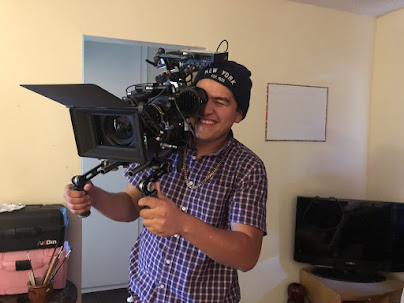Radio: Launch of Radio 1 CSP case study
1) What radio stations were offered by the BBC before 1967?
BBC Radio Home, BBC Radio Light and BBC Third.
2) How was BBC radio reorganised in September 1967? What were the new stations that launched?
2) How was BBC radio reorganised in September 1967? What were the new stations that launched?
To meet the demand for music generated by pirate audio stations. It was done by targeting ages 15-29.
3) What was pirate radio and why was it popular?
3) What was pirate radio and why was it popular?
There was clearly a need for a radio outlet for this music with a less formal presentation style; but there was nothing on the BBC. This led to the growth of ‘pirate’ radio stations who could produce these shows for young people, but were beyond the control of regulators.
4) Why did pirate radio stop broadcasting in 1967?
4) Why did pirate radio stop broadcasting in 1967?
It was outlawed.
5) How did the BBC attract young audiences to Radio 1 after pirate radio stations were closed down?
5) How did the BBC attract young audiences to Radio 1 after pirate radio stations were closed down?
It started to target younger audiences.
6) What was 'needle time' and why was it a problem for BBC Radio? It limited time for BBC to play music.
7) How did BBC Radio 1 offer different content to previous BBC radio stations?
It had a different target audience.
8) Who was the first presenter for BBC Radio 1 and why did these new Radio 1 DJs cause upset initially at the traditional BBC?
8) Who was the first presenter for BBC Radio 1 and why did these new Radio 1 DJs cause upset initially at the traditional BBC?
The first presenter is called Tony Blackburn. They were upset because younger audiences didn't like it.
9) Listen to excerpts from the Tony Blackburn's first 1967 broadcast - how might it have appealed to young listeners?
9) Listen to excerpts from the Tony Blackburn's first 1967 broadcast - how might it have appealed to young listeners?
Radio 1 developed better content for them.
10) What conventions did Tony Blackburn's radio show borrow from pirate radio - which made it very different to previous BBC radio content?
10) What conventions did Tony Blackburn's radio show borrow from pirate radio - which made it very different to previous BBC radio content?
No limitations.
1) What was the target audience for BBC Radio 1 in 1967?
The target audience is 15- 29 years old.
2) Why did Radio 1 initially struggle to attract young listeners?
2) Why did Radio 1 initially struggle to attract young listeners?
It was old-fashioned.
3) What audience pleasures did Radio 1 offer listeners in 1967? (Use Blumler and Katz Uses and Gratifications theory).
3) What audience pleasures did Radio 1 offer listeners in 1967? (Use Blumler and Katz Uses and Gratifications theory).
4) How is the BBC funded? By a license fee
5) Applying Stuart Hall's Reception theory, what would the preferred and oppositional reading have been of BBC Radio 1 in 1967?
Everything and anything said on the radio channel means that it is notifying the public and that they should be fully aware of what they are saying, so its like a news channel but not entirely as they have to focus on broadcasting music.

Comments
Post a Comment